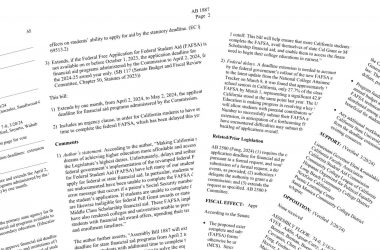Washington, D.C. reduced the penalty from jail time for possession of marijuana to a civil violation of $25 for possession of one ounce or less three months ago. It will soon be determined if the nation’s capital will “decriminalize” the use and sale of marijuana.
If passed, Initiative 71 will make it lawful in D.C. for a person, 21 years or older, to possess up to two ounces of marijuana for personal use. The initiative also allows a person to grow up to six cannabis plants within their private residence and transfer (without payment) up to one ounce to another person. It would legalize the use or sale of drug paraphernalia for cannabis use, growing or processing.
According to an NBC4/Washington Post/Martist poll, 65 percent of the voters support the initiative, 33 percent opposed and 2 percent were unsure.
The initiative removes any penalty for possession of small amounts or non-commercial transfers, but doesn’t institute any taxation system. If approved, D.C. could look into implementing a tax system following Colorado and Washington, which already have a tax structure for marijuana in place. D.C. Council is considering a bill proposed by Councilmember David Grosso that would tax and regulate marijuana in the district should Initiative 71 pass.
Congress has authority over law-making in D.C. In 1998, an initiative to legalize marijuana was passed by voters, but Congress, with Republicans in both chambers, blocked its implementation for 10 years. Medical Marijuana is legal today in D.C.
There is about a 70 percent chance of Republicans taking over the senate, according to The New York Times. If Initiative 71 were to pass, it wouldn’t take effect until after a 60 day congressional review period that will begin when the 114th Congress is in session. If Congress decides not to do anything, the provisions of Initiative 71 will go into effect at the end of the review period.
If Congress sees fit, they could try to block implementation of the referendum by attaching an amendment to a crucial piece of legislation, such as a spending bill used to fund the federal government. This was the method used in 1998.



